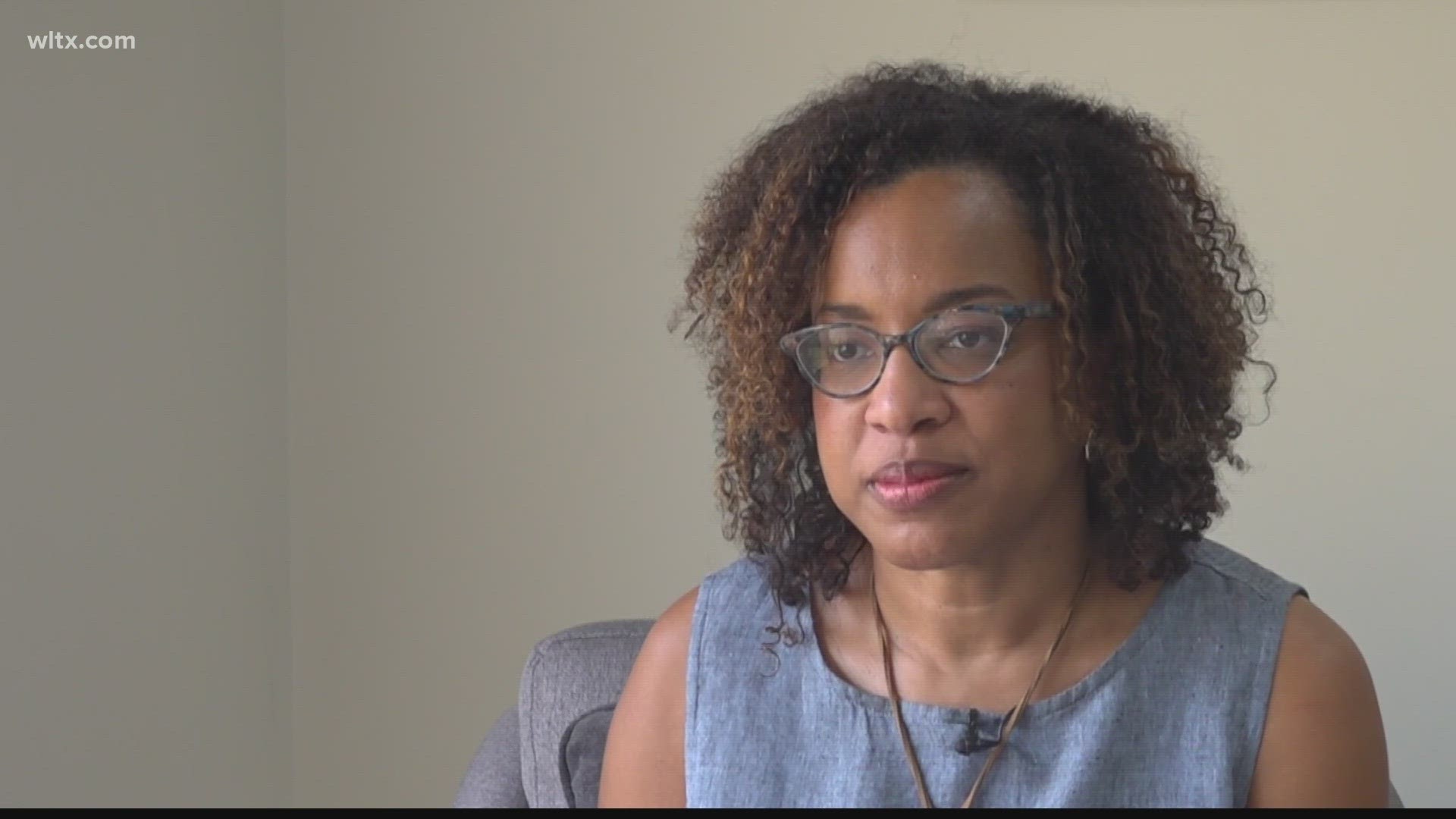SUMTER, S.C. — A Sumter native will be filling the role of Harvard Divinity School at the start of the year. Marla Frederick grew up in the Midlands before becoming a cultural anthropologist.
“I've always thought that at some point, whatever my gifts and talents are, I want to use them to advance the goals of higher education,” Frederick explains.
It’s a goal she set early on, which Frederick is now able to live out as the incoming dean of Harvard Divinity School.
“In that role, you're helping to realize the vision of the school, whatever that strategic vision is. Hiring faculty, managing the day to day operations of the school, engaged in student life, and trying to help people really understand and appreciate the value of theological education not only at Harvard, but beyond its walls,” Frederick shares.
Frederick got her start in Sumter, growing up in the Gamecock City and graduating from Sumter High School, where she served as the 1990 Student Body President, was a varsity cheerleader, a member of the marching band and vice president of Black Heritage Club. She earned the "Best All-Around Superlative" before going to Spelman College. Frederick earned a Ph.D. from Duke University. As she gets ready for her next journey, Frederick tells me it’s her Sumter roots that inspire her.
“I certainly think it's the type of support that I've had from teachers and the community of educators who've educated me from kindergarten through my senior year of high school. It's also the less kind of formal networks through my church, First Baptist Missionary Church and wonderful people there,” Frederick smiles. “When I was a young person at First Baptist Missionary Church, there was a constant emphasis on education, and so many of the members there were teachers and leaders in the community and so you see that and it just becomes a part of your lifeblood.”
Another part of that inspiration was Morris College, where Frederick tells me she grew up around. Living right down the street, Frederick’s father was the college’s business manager, so she was often around the campus.
Frederick says this experience has encouraged her to continue researching historically Black college and university (HBCU) histories in her career as a professor of religion and culture at Emory University.
“What theological education I think does is help people to really appreciate the vantage point of our neighbors and figure out where are the places of common human dignity and respect and need that we all share that we can help one another, build relationships with human flourishing, so I am particularly interested at harvard in promoting those types of conversations,” Frederick details. “As a cultural anthropologist, I'm a social scientist of religion. And what that means is I've studied different religious traditions and different experiences across cultures, to see how religion can be a force for good and how religion can also be a force for violence and death and destruction.”
With her hometown rooting for her along the way, showing lots of support for Frederick's next journey.
“It's been incredible. I have truly appreciated the outpouring of support. I tell people all the time in the Northeast, everybody's from you know they're from LA, they're Philadelphia, from New York, from these big cities, but when you're from a small town, people know you, they love you. They support you,” Frederick explains. “They've known you since you've been knee high to a tadpole. Your accomplishments are their accomplishments because they've poured so much into you.”
Frederick will begin her new role in Cambridge in January. For now, she’s finishing up her last semester teaching at Emory.
“[Theology is] a study of how people have come to understand God over time. And what's really valuable about it, particularly in this moment, is that I think the more people understand theological education — which includes not only the study of Christianity, but Islam, Judaism, Hinduism — but as it helps us, as a society, better appreciate one another,” Frederick explains. “In the United States, we live in not only a multi-racial democracy, but a multi-religious democracy. And to the extent that we're able to have better dialogue and understanding across difference, I think we live in a better, more productive democracy. And I think we really have to commit ourselves to appreciating what that democracy is. We're not a theocracy. We're not a monarchy. We are a democracy. And that means appreciating one another across difference.”

